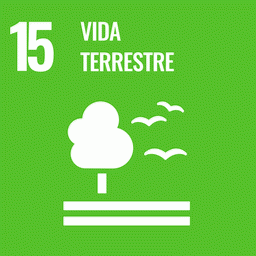We surveyed two savanna sites, one on flat terrain with deep soil (DS), and the other on hilly terrain with rocky outcrops and shallow soil (RS), before and after an accidental fire. We found that the fire did not cause any significant changes in the species composition or diversity of either community, and did not result in floristic homogenization. However, we did record a reduction in the density of plants and in basal area in the DS savanna in comparison with the RS savanna, as well as a higher rate of basal sprouting, which indicates a trade-off between mortality and sprouting. We conclude that, whereas post-fire changes in vegetation structure were more pronounced in the DS savanna than in the RS, the difference in the underlying substrate did not have a direct influence on the post-fire composition of woody species. The greater grass biomass found in the DS savanna in comparison with the RS savanna appears to have been the principal modulator of the severity of the fires in the two phytophysionogmies, and accounts for the distinct responses to fire we observed in the two woody communities.
Forest Fire Prediction and Prevention in the Brazilian Amazon
Muitas florestas na Amazônia são capazes de resistir às queimadas durante a estação seca comum em aproximadamente metade da bacia. Entretanto, as florestas tolerantes à seca perdem sua resistência ao fogo quando submetidas às operações de exploração madeireira....
